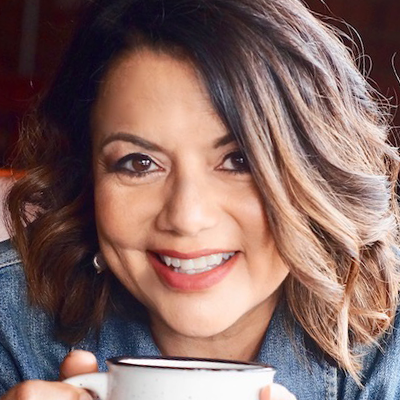
Social Anxiety Support Groups: How to Get Help and Positive Reinforcement
Key takeaways:
Social anxiety disorder (SAD) is a mental health condition that causes you to fear being judged in social situations, such as when you meet new people or speak in public.
Support groups may be helpful for your recovery from SAD. They connect you with other people who are also dealing with SAD for emotional and practical support.
Below you’ll learn ways to find a SAD support group in your area, online chat forums, and organizations dedicated to social anxiety research and advocacy.

Does the thought of meeting new people and making new friends trigger panic attacks? You may be one of the 7% of American adults who deal with social anxiety disorder.
Social anxiety disorder (SAD) is a fear or phobia that other people might judge or scrutinize you. You may also be afraid of embarrassing or humiliating yourself.
Identifying that you have social anxiety disorder is the first step. Next comes finding the right treatment options and support. In talking to your healthcare provider, you might learn about support or therapy groups. A social anxiety group could hold the keys to freedom from SAD.
What are social anxiety support groups?
A support group is a group of people with a common condition who help each other cope by sharing experiences, resources, and encouragement. A social anxiety support group brings together people who want to work through SAD.
Support groups can offer a number of important benefits. Peer support groups in general seem to have a therapeutic effect on people with mental health challenges.
Studies suggest that peer support may help people better manage their condition and treatment. This leads to improved health, a higher quality of life, and better treatment outcomes.
What are the different kinds of social anxiety support groups?
There are three types of social anxiety support groups. It’s all about finding out what feels right for you.
Peer support groups: People who have experience with social anxiety often volunteer to start support groups. While the group may not focus on therapy, many members find these get-togethers beneficial. Some groups simply socialize, while others, like Social Anxiety Anonymous, cover a 12-step program similar to Alcoholics Anonymous.
Online forums and groups: If you’re not ready to join an in-person group, online forums and groups allow you to discuss your experiences, get feedback, and find support from home. They may give you the boost you need to seek support from a local group when you’re ready.
Therapy groups: Licensed mental health care providers sometimes lead social anxiety therapy groups. Therapists use evidence-based group treatments such as cognitive behavioral therapy (CBT) to help members work through their fears and symptoms. Group therapy isn’t the same as a support group, though. These groups are typically more structured, and there may be rules against socializing with other members outside of group sessions.
How can I find a social anxiety support group near me?
Social anxiety support and therapy groups meet every day across the U.S. and online. You can find one by:
Asking your therapist: If your therapist doesn’t lead a social anxiety support group, they may know a counselor or clinic that does. Keep in mind that some therapists offer therapy groups you can join even if you don’t work with them privately. But you’ll only be able to join therapy groups in your state because of therapist licensing rules.
Googling “social anxiety support group”: Enter the name of your city, county, or zip code to locate groups near you. For example, you can search for “social anxiety support groups in Austin, Texas.” This may bring up both therapy and peer support groups. If you just want peer support groups or just therapy support groups, add those words to your Google search.
Trying Meetup: Meetup is a platform that helps people find like-minded individuals and groups. Type the term “social anxiety” in Meetup’s search field, and you’ll find over 1,000 groups.
Looking on ADAA: The Anxiety & Depression Association of America (ADAA) has a search tool on its website to find local support resources. Fill in the words “social anxiety” and click on your state.
Checking out NSAC: The National Social Anxiety Center (NSAC) is an association of regional clinics throughout the U.S. Most clinics offer classes and group therapy.
Searching the NAMI chapter for your state: The National Alliance on Mental Illness (NAMI) has websites dedicated to each state. Simply google NAMI and your state, like “NAMI Ohio” or “NAMI Colorado.” Then look for a resources, programs, or support tab on the home page. You can also call NAMI’s national helpline at 1-800-950-6264 to be connected with groups in your state or local area.
Joining the SAS discussion board: Support group facilitators announce their meetings on the Social Anxiety Support (SAS) website. Meetings take place in cities across the U.S. or online.
How do I find social anxiety online forums and groups?
You can also find peer support for social anxiety disorder online. Facebook has many social anxiety support groups. Just enter “social anxiety” in the search field. You can start by checking out some of the Facebook groups below:
|
Facebook group name and link |
Number of members |
|
45,500 |
|
|
2,400 |
|
|
17,000 |
|
|
6,600 |
|
|
13,600 |
|
|
1,300 |
Dedicated social anxiety disorder forums also exist. An online forum is a message board or online discussion where you can ask questions or offer information. Online forums also allow you to connect with peer support.
Online forums for social anxiety include:
Plus, check out these hashtags on social media:
Why are support groups for anxiety important?
Support groups offer a wide range of benefits. For starters, they provide a safe space for you to share your struggles. As you become more comfortable, you may find yourself speaking up and encouraging others. These shared experiences can help you feel empowered and give you purpose.
Support groups might also help you:
Feel less alone
Build your self-confidence and resilience
Give you opportunities to practice social engagement
Improve your overall well-being in spiritual, social, and work settings
Nurture emotional growth
Get nonjudgmental support
Reduce stigma surrounding mental health issues
Strengthen relationships at home and at work
Make new friends
Develop self-confidence
Take better care of your physical health
How do I work up the courage to go to a support group for anxiety?
Meeting with strangers can be scary, even for socially confident people. But it’s even scarier if you have social anxiety disorder. You may dread talking to people you don’t know or sitting in a crowded room. Just know that you’re not alone. Every person in that group can remember how it felt to attend their first meeting.
To get up the courage to go to a support group for social anxiety, these tips may help:
Enlist support for your first meeting. Ask a friend or family member to go with you to your first group if you’re not ready to go by yourself. While they may not be able to attend the group with you, their presence on the drive there may help calm your nerves.
Remember, you’ll be with others who feel your pain. They’re working through social anxiety just like you. You probably won’t be the only one who’s nervous.
Don’t force yourself to speak up. Sit back, observe, and share when you’re ready. You may be surprised that it feels better to open up about your experiences.
Practice breathing exercises. They can calm your nerves, slow your heart rate, and help quiet racing thoughts. You can quietly use breathing exercises at any time before, during, and after a meeting.
Avoid alcohol before a meeting. About 1 in 3 people with social anxiety disorder misuse alcohol. While drinking may calm your nerves at first, it can later increase anxiety, irritability, or depression.
Be prepared to engage in social mishaps. Social mishaps are behaviors that may feel embarrassing. Studies suggest that people who experienced social mishaps learned that they could survive the consequences of the mishap and that the exaggerated consequences they feared generally did not happen.
Use reframing techniques to rethink how you feel about going to a meeting. Change your thinking from, “No one in the group is going to understand me,” to, “This group is filled with people just like me. We’re going to work through this together.”
Anxiety hotlines for when you’re in a state of emergency
There’s nothing worse than having an anxiety-related crisis. If you are having a mental health emergency, reach out for immediate help. You can talk to a trained crisis counselor free of charge by contacting one of the following hotlines:
988 Suicide & Crisis Lifeline: 988, open 24/7
Crisis Text Line: Text CONNECT to 741741
National Alliance on Mental Illness (NAMI) Helpline: 1-800-950-NAMI, open 10AM to 6PM (EST) Monday through Friday
Disaster Distress Helpline: 1-800-985-5990 or text TalkWithUs to 66746, open 24/7
Teen Line: 1-310-855-HOPE or 1-800-TLC-TEEN, open 6PM to 10PM (PST) for teen-to-teen peer counseling
Boys Town National Hotline: 1-800-448-3000, open 24/7
Veterans Crisis Line: 1-800-273-8255 or text 838255, open 24/7
SAMHSA Helpline: 1-800-662-4357, open 24/7
National Mental Health Hotline: 1-866-903-3787, open 24/7
The Trevor Project: 1-866-488-7386 or text “start” to 678-678, open 24/7 for LGBTQ young people
Organizations that can help with social anxiety disorder
Nonprofit organizations that focus on social anxiety promote advocacy, research, and resources for people with social anxiety disorder. They work to destigmatize social anxiety and educate communities about mental health disorders.
You may want to visit their websites and learn more about them. They may be able to help you find a therapist or a support group. They may also have educational materials you can share with friends, family, and coworkers.
Organizations dedicated to social anxiety include:
The bottom line
Social anxiety disorder is a mental health condition that you can work through with therapy and support. Support groups are especially helpful because members are working through social anxiety challenges in a safe space. Plus, they provide a great place to make new friends who understand you. Take a deep breath and join them. Consider it your first step toward living your best life.
Why trust our experts?



References
American Psychiatric Association. (2021). What are anxiety disorders?.
Baillie, A. J., et al. (2013). An investigator-blinded, randomized study to compare the efficacy of combined CBT for alcohol use disorders and social anxiety disorder versus CBT focused on alcohol alone in adults with comorbid disorders: The combined alcohol social phobia (CASP) trial protocol. BMC Psychiatry.
Fang, A., et al. (2013). Social mishap exposures for social anxiety disorder: An important treatment ingredient. Cognitive and Behavioral Practice.
Goldin, P. R., et al. (2013). Impact of cognitive behavioral therapy for social anxiety disorder on the neural dynamics of cognitive reappraisal of negative self-beliefs: Randomized clinical trial. JAMA Psychiatry.
Johnson, B. (2019). Psychotherapy: Understanding group therapy. American Psychological Association.
National Cancer Institute. (n.d.). Support group.
National Voices. (n.d.). Peer support: What is it and does it work?.
Shalaby, R. A. H., et al. (2020). Peer support in mental health: Literature review. JMIR Mental Health.
For additional resources or to connect with mental health services in your area, call SAMHSA’s National Helpline at 1-800-662-4357. For immediate assistance, call the National Suicide Prevention Lifeline at 988, or text HOME to 741-741 to reach the Crisis Text Line.









